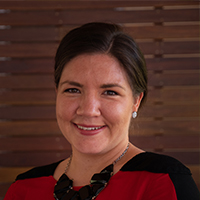Fast Facts
Location
Commencing
- Online: March, July, October
- Townsville: March, July, October
- Cairns: March, July, October
Students can commence in March, July and October of each year
Fees
Course fees are not applicable for Domestic students
Student Services and Amenities fee payableFee deferral and scholarships available if eligible
Currently displaying fees for 2025, which are subject to change in following years.
Duration
2 years full-time
Entry Requirements
AQF level 7 bachelor degree with conditions
Course Code
111103
Course detail
Identify and outline a relevant issue in your chosen research area. Develop advanced skills in research principles to plan and produce an original contribution to the field of Indigenous studies. Studies will culminate in a presentation of your thesis.
Benefit from the guided support of experienced supervisors, as well as access to resources across all disciplines and colleges at JCU. Engage and network with leading researchers, world-class lecturers, and fellow students.
Choose from a broad range of research areas to suit your professional qualifications and interests. Research areas include:
- Indigenous studies, knowledge and culture
- Indigenous community development
- Indigenous intersections with other disciplines
Make a meaningful contribution to the future of Indigenous research and affairs. Master of Philosophy students are equipped with the critical skills required to work in research or to continue on to study a PhD.
View the Handbook for a detailed overview of available subjects, as well as a list of available research areas.
JCU Master of Philosophy (Indigenous) graduates are internationally recognised as experts who produce valuable new knowledge in their fields.
Graduates pursue careers in politics, Indigenous areas of corporate organisations, not-for-profit, media, research and education.
You could find employment as a research officer, policy advisor, community relations officer, journalist, Indigenous programs advisor, politician in Indigenous Affairs, academic, lecturer or school leadership positions. Graduates can also continue their independent research in a Doctor of Philosophy.
JCU, with the support of the Australian Government’s Research Training Program, will cover the costs of tuition fees for Australian citizens/permanent residents and New Zealand citizens.
All candidates can also apply for a competitively-awarded stipend to help with living and tuition costs.
A Student Services and Amenities fee is payable per subject up to a maximum amount per year.
Learn more about fees and financial support
JCU offers multiple Pathways to University. If you do not meet the entry requirements for this course, consider exploring our available Pathways options.
Contact our friendly team today to discover which pathway is right for you.
To be eligible to apply for entry to a Research Masters degree an applicant must demonstrate the capacity to undertake research at the Research Masters level by the attainment of a Bachelor’s Degree with either a Grade Point Average (GPA) of at least 5.5 in the final full time year of study, or with demonstrated research experience.
Visit the Graduate Research School website for more information, and then complete an online application through our Online Application Portal.
Real stories
-

Student
Jesse King
Master of Philosophy (Indigenous)
I feel a lot more prepared to successfully undertake a research masters. I understand the processes, skills and techniques a lot better. It’s also good getting to know the supervisors and building that relationship and knowing that I’ve got a good support structure to be able to call back on when I need a hand.
-

Student
Georgia Storm
Master of Philosophy (Indigenous)
The intensive workshop has been fantastic. I’ve never had this level of support in any of my previous education. This is an entirely different way of teaching.
-

Lecturer
Dr Ailie McDowall
Indigenous Education and Research Centre
A Master of Philosophy is quite fun – it’s very different from coursework. It’s self-guided. You get to develop your own projects as you go. You’re coming up with research problems and research questions. You’re learning how to develop data collection tools. You’re learning skills that can be used in any setting.